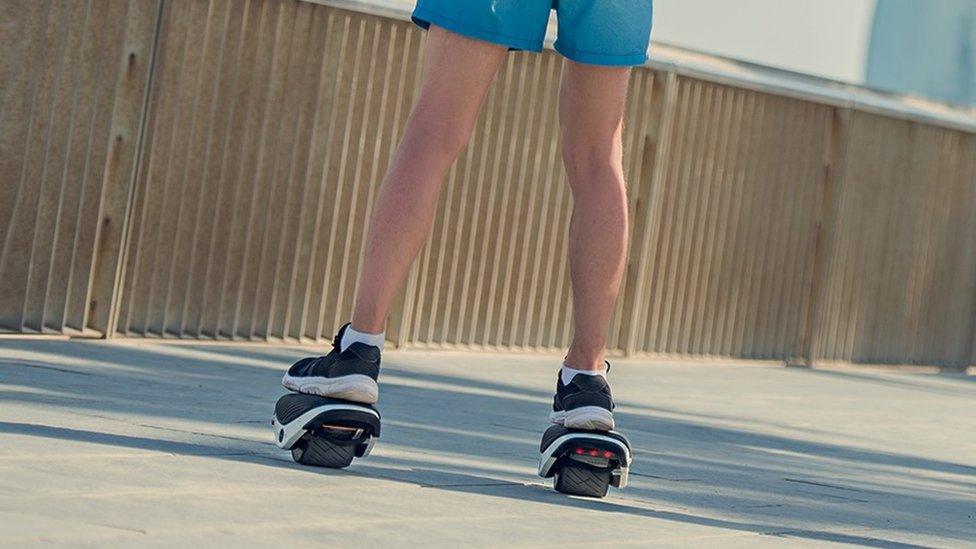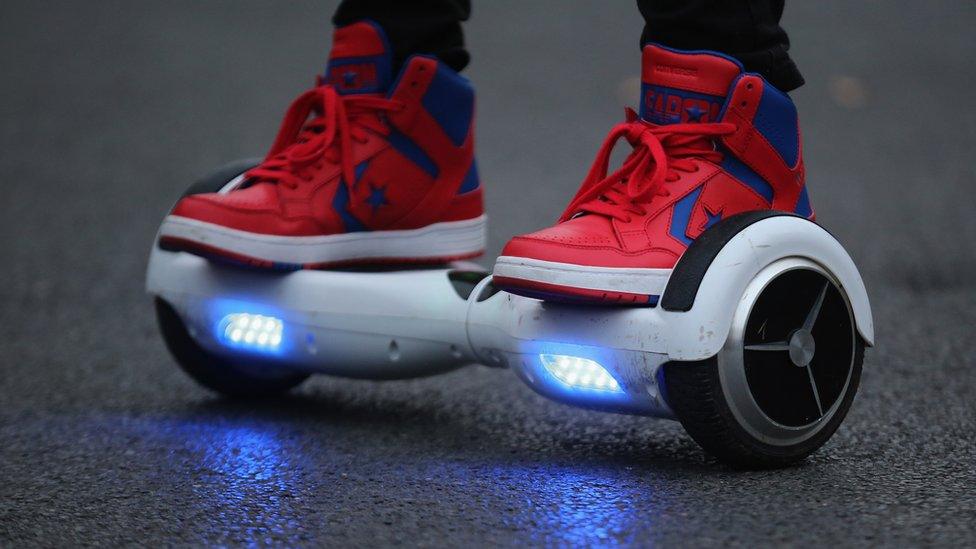Segway electric skates face 'hoverboard ban'
- Published

Self-balancing electric roller skates developed by personal transportation company Segway-Ninebot are to be banned on the UK's public pavements and roads.
The Department for Transport (DfT) told the BBC the skates fell under the same rules as powered rideables such as electric scooters and "hoverboards".
Segway-Ninebot said its new skates had a top speed of 12 km/h (7.5mph).
However, they are classed as "carriages" under the Highways Act of 1835 and are banned from the pavement.

The skates have a "travel time" of 45 minutes
Video-maker Casey Neistat, who was given a pair of the skates to test in New York City, external, also faced difficulty finding places to try them out.
He said he preferred riding them on smooth surfaces, but was quickly stopped riding inside Grand Central Station by a security officer.
The DfT added that powered transporters were usually not allowed on UK roads.
It said: "For most powered transporters, their construction is such that they clearly would not comply with the normal vehicle construction rules or with type approval."
This would limit their use to private property with the landowner's permission.
The same rules apply to electric scooters, electric unicycles and the two-wheeled "hoverboards".
The Drift W1 electric skates were revealed in June and described by the company as "a new trendy way to move".
On Tuesday, it revealed a pair would cost $399 (£303).
The company says on its website: "Rules and regulations for riding Segway products on public roads differ for every country."
- Published6 April 2016
